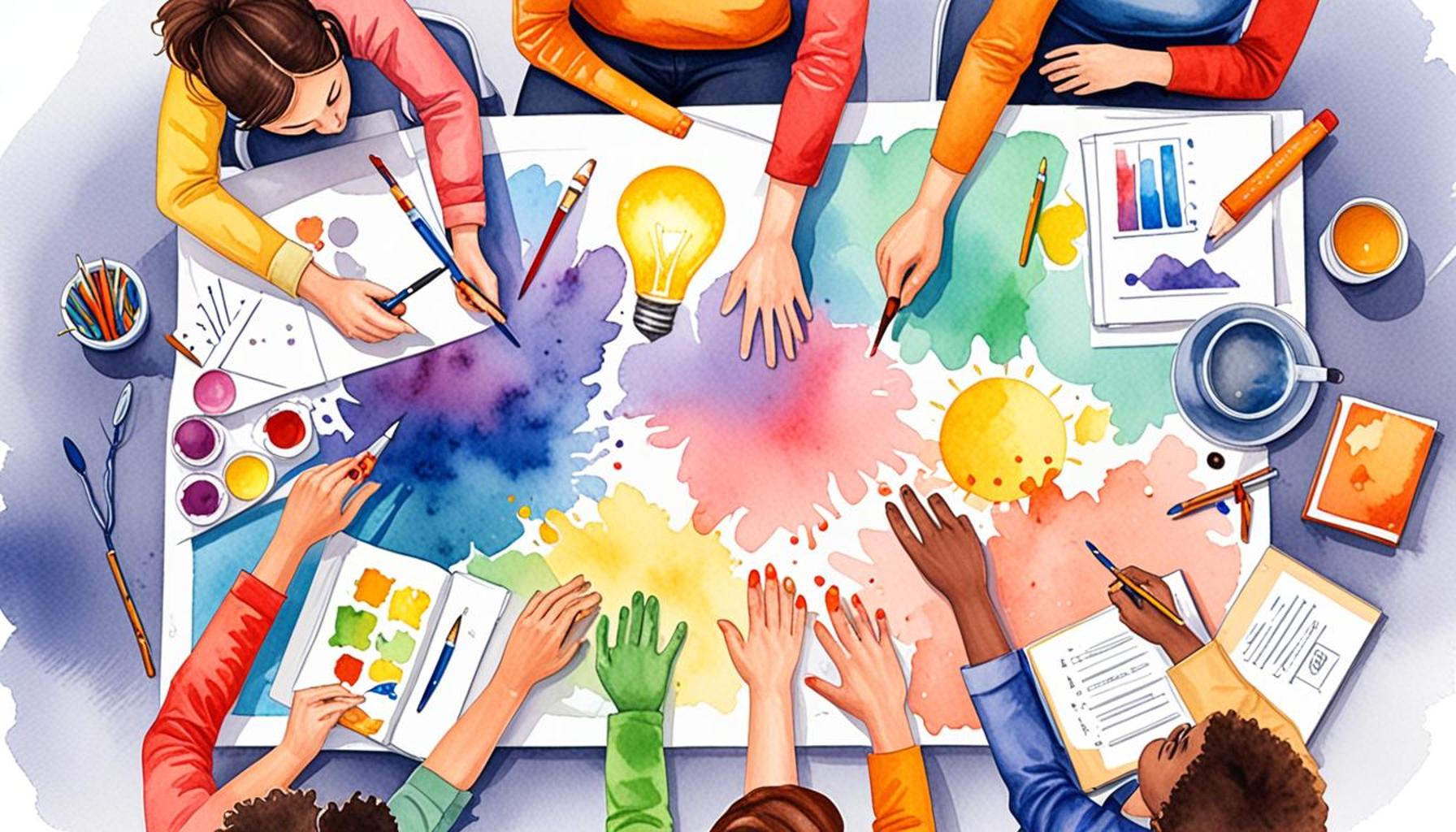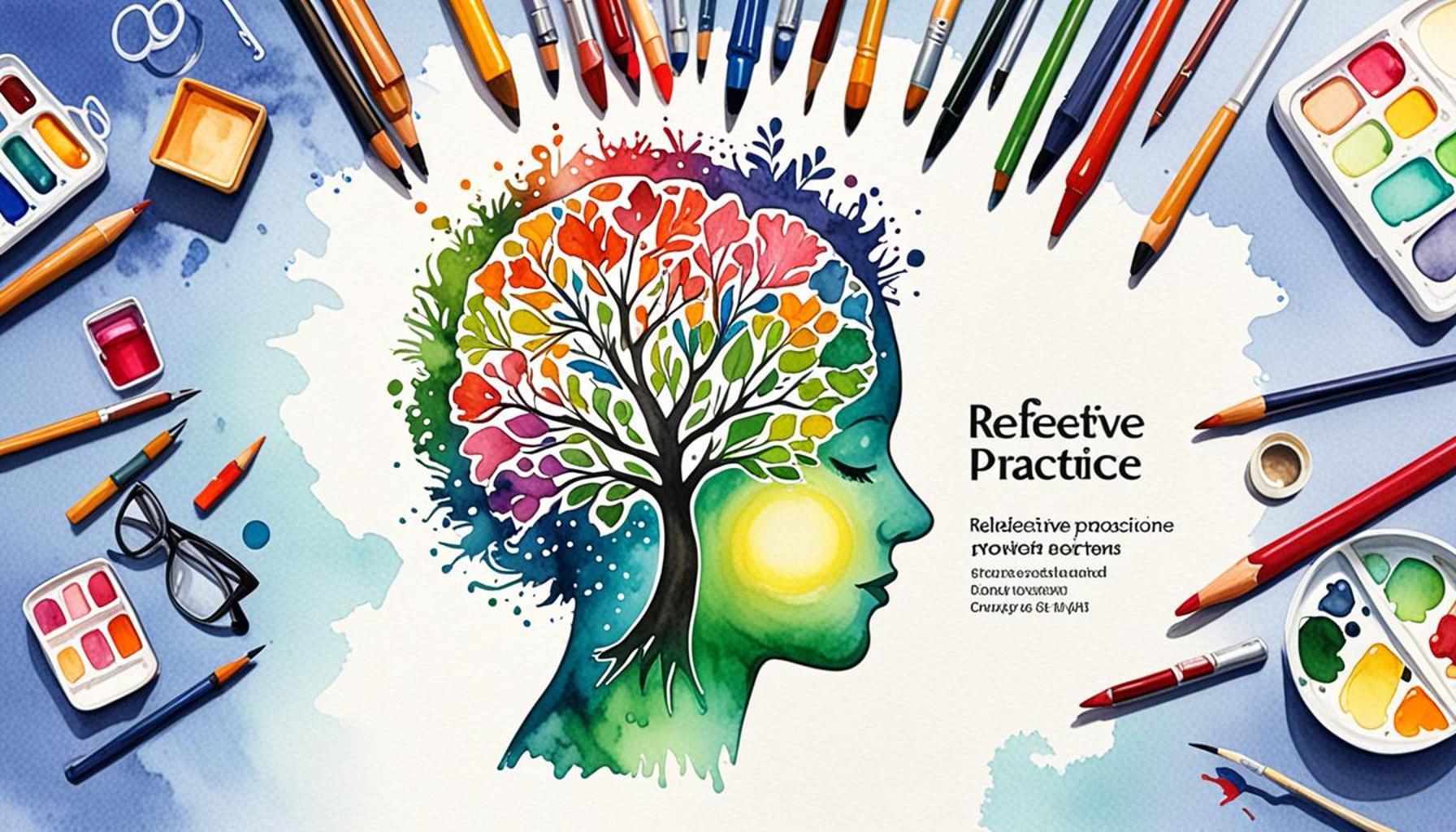Reflective Practice as a Strategy to Promote Empathy and Collaboration in Teams

Understanding Reflective Practice
In today’s fast-paced work environment, collaboration and empathy have emerged as critical components for teams striving for success. Teams in Nigeria and beyond are discovering that fostering these qualities can lead to better problem-solving and innovation. One powerful approach to achieving this is through reflective practice.
What is Reflective Practice?
Reflective practice involves intentionally analyzing experiences to learn and grow from them. This concept is valuable across various fields, including education, healthcare, and business. Key elements include:
- Self-awareness: Understanding one’s emotions and responses plays a significant role in professional settings. For example, a team member who acknowledges their frustration during a project can better manage those emotions and collaborate more effectively with colleagues.
- Feedback: Learning from the perceptions and actions of others is vital. Constructive criticism not only informs individual performance but can also guide team dynamics and improve group outcomes. Teams that prioritize feedback create an environment where all voices are heard, leading to richer ideas and solutions.
- Continuous improvement: A commitment to evolving based on insights gained is essential. This can manifest as regular reviews of team processes or personal goal-setting. For instance, a Nigerian business might implement quarterly reflective sessions to dissect projects and explore what worked well and what could be improved for future initiatives.
Why it Matters for Teams
As teams in Nigeria aim for higher productivity, leveraging reflective practice can significantly enhance their functionality. By integrating reflective practices, teams can:
- Strengthen interpersonal relationships. When team members engage in reflective discussions, they foster a deeper understanding and trust in one another, enhancing collaboration.
- Develop deeper empathy towards one another. By recognizing and valuing diverse perspectives, teams can bridge cultural gaps and create a more inclusive work environment, vital in Nigeria’s multicultural society.
- Improve communication and conflict resolution skills. Reflective practices encourage open dialogue, allowing teams to navigate disagreements constructively, which is crucial in preserving team harmony.
Exploring how reflective practice can serve as a catalyst for empathy and collaboration equips teams with essential tools for navigating complex challenges. Engaging in these practices not only enhances individual growth but also strengthens the entire team dynamic. The ability to learn from experiences and adapt accordingly creates a resilient workforce, capable of tackling the ever-evolving demands of today’s professional landscape. In Nigeria, where challenges and opportunities abound, adopting reflective practice is not just beneficial—it is essential for sustained success and innovation in various sectors.
Ultimately, in the relentless march of modern work culture, teams that prioritize reflective practice are not merely surviving; they are thriving, ready to take on challenges with a united front and a clear vision for improvement.

YOU MAY ALSO LIKE: Read read another article
The Role of Reflective Practice in Building Team Cohesion
In the context of Nigerian workplaces, where team dynamics can be influenced by cultural diversity and varying work ethics, reflective practice serves as a vital tool for fostering empathy and enhancing collaboration. This strategic approach encourages individuals and teams to pause, reflect, and connect with their experiences, ultimately leading to a more harmonious work environment.
Enhancing Emotional Intelligence
One of the significant advantages of implementing reflective practice is its ability to cultivate greater emotional intelligence among team members. Emotional intelligence is the capacity to recognize, understand, and manage our own emotions while also being attuned to the emotions of others. This skill is increasingly essential in today’s workplace, where diverse personalities converge. Through reflective practices, team members can gain insights into their emotional triggers and learn to respond thoughtfully, rather than react impulsively.
Consider a scenario in a Nigerian marketing firm where a campaign does not yield the expected results. A reflective inquiry could lead the team to analyze the collective emotional responses to the setback. Recognizing feelings of disappointment or frustration can help individuals articulate their emotions, paving the way for more open discussions. Furthermore, this process can validate the experiences of all team members, reinforcing a sense of belonging and support.
Encouraging Inclusive Dialogue
Reflective practice also plays a crucial role in promoting inclusive dialogue among team members. By providing a structured opportunity for reflection, teams encourage all members to contribute their thoughts and perspectives, regardless of their position within the organization. Such inclusivity is essential in a multicultural setting like Nigeria, where diverse backgrounds can lead to various approaches to problem-solving.
- Establishing a Safe Space: Reflective sessions create a safe environment where individuals feel comfortable sharing their ideas and concerns without fear of judgment. This sense of safety is a prerequisite for fruitful discussions.
- Fostering Curiosity: By engaging in reflective practice, teams nurture a culture of curiosity, prompting team members to explore questions and delve deeper into issues rather than making hasty conclusions.
- Building Mutual Respect: As team members share and reflect on their experiences, they develop a deeper understanding of each other’s viewpoints, fostering mutual respect. This respect is fundamental for optimizing collaboration and teamwork.
Through these methods, reflective practice not only enhances individual self-awareness but also weaves a fabric of mutual understanding among team members. The process focuses on examining experiences, leading to empathy and stronger bonds within the team. In a rapidly evolving business landscape, especially in Nigeria, where collaborative efforts often dictate success, implementing strategies that leverage reflective practice is imperative. It is clear that the future of teamwork lies in the enhancement of empathy and collaboration, achieved through thoughtful reflection and open dialogue.
| Advantage | Details |
|---|---|
| Enhanced Communication | Reflective practice facilitates open dialogue, allowing team members to express thoughts and feelings, ultimately fostering greater understanding. |
| Increased Empathy | By encouraging team members to reflect on their experiences and consider others’ perspectives, empathy within teams is significantly enhanced. |
| Team Cohesion | Regular reflective practices can build trust, as team members feel safer sharing their vulnerabilities and experiences, leading to stronger bonds. |
| Problem-Solving Skills | Reflective practices enhance problem-solving abilities by promoting critical thinking and collective brainstorming of ideas and solutions. |
The integration of reflective practice within team dynamics not only paves the way for improved communication but also lays the foundation for increased empathy among team members. More importantly, teams can cultivate a culture rich in collaboration, where sharing diverse viewpoints leads to innovative solutions and a problem-solving mindset. This practice serves to unify team efforts, fostering stronger relationships that naturally blossom from a deeper understanding of one another. It’s a cycle that continually feeds back into itself, enhancing overall team performance and morale.As professionals strive for enhanced teamwork, understanding the complexities and dynamics of reflecting on one’s experiences is key to unlocking collaboration. The benefits are far-reaching, influencing not just the individual, but contributing significantly to the overall productivity and effectiveness of the team. Exploring various reflective practices can lead to transformative outcomes that resonate throughout an organization, making it essential to delve deeper into existing frameworks.
LEARN MORE: This related article may interest you
Transforming Team Dynamics Through Reflective Practice
As organizations in Nigeria strive for greater effectiveness amidst the challenges of economic fluctuations and varying societal expectations, the need for teams to adapt and thrive has never been more critical. Reflective practice emerges as a deliberate strategy to not only enhance team collaboration but also to reshape interpersonal dynamics that foster a deeper sense of empathy among team members.
Promoting Conflict Resolution
Conflict is an inevitable aspect of teamwork, especially in diverse environments where differing opinions and work styles coexist. Reflective practice equips team members with the tools to address conflicts constructively. By encouraging individuals to reflect on their own contributions to conflict situations, teams can foster a culture of accountability. This shift in perspective is vital in a country like Nigeria, where hierarchical structures may sometimes hinder open communication.
For instance, in a Nigerian tech startup, two team members might clash over the direction of a software project. By engaging in reflective practice, they can be prompted to examine how their communication styles and emotional responses contributed to the misunderstanding. This practice not only mitigates immediate tensions but also builds essential conflict-resolution skills within the team, turning potential discord into opportunities for greater collaboration.
Encouraging Continuous Learning
The rapidly evolving nature of the global marketplace demands that teams remain agile and receptive to change. Reflective practice nurtures a mindset of continuous learning, encouraging team members to view challenges as valuable opportunities for growth. This is particularly pertinent in settings such as Nigerian educational institutions, where adaptation and innovation are continually necessary to meet the needs of a diverse student population.
- Adapting to Feedback: Reflective practice encourages teams to embrace feedback not as criticism but as a catalyst for improvement. In a school, for instance, a team of educators can analyze collective student performance data to identify gaps in teaching methods. Engaging in reflection allows educators to come together and share experiences, leading to enhanced teaching practices.
- Identifying Strengths and Weaknesses: Reflective sessions provide a platform for team members to acknowledge their strengths and identify areas for development. This process helps cultivate an environment where team members feel empowered and supported, leading to a more effective collaboration.
- Creating a Culture of Experimentation: Reflective practice encourages teams to experiment with new ideas without the fear of failure. By being open to trying innovative solutions, teams can adapt more readily to changing market conditions and growing consumer expectations.
Incorporating reflective practice as a foundational strategy within teams not only enhances individual and collective performance but also solidifies a culture of empathy and collaboration. As organizations in Nigeria navigate an increasingly complex business landscape, focusing on reflective practices can transform how teams interact, resolve conflicts, and learn from their experiences. In doing so, reflective practice emerges as an essential key to unlocking the full potential of teamwork, especially within the framework of Nigeria’s rich cultural tapestry.
CHECK OUT: Click here to explore more
Conclusion: The Unseen Strength of Reflective Practice
In a world where team dynamics can significantly influence organizational success, reflective practice stands out as an invaluable tool. It not only fosters a culture of empathy but also enhances collaboration among team members, making it especially pertinent in the diverse and multifaceted context of Nigeria. As teams contend with the realities of economic unpredictability and shifting societal expectations, the ability to reflect on experiences becomes a powerful catalyst for growth and adaptability.
The benefits of reflective practice extend beyond immediate conflict resolution and skill enhancement; they create a robust framework for continuous learning and improvement. By transforming challenges into learning opportunities, teams can cultivate an atmosphere where innovation thrives, leading to increased efficiency and productivity. The process allows team members to engage deeply with their own beliefs and behaviors, promoting a profound understanding of diverse perspectives that is crucial in Nigeria’s multicultural environment.
Furthermore, as organizations prioritize flexibility and resilience, reflective practice offers a sustainable approach to navigating complexities. Embracing reflective strategies encourages openness and trust, essential ingredients for any team determined to excel. As we look toward the future, it becomes evident that the integration of reflective practice is not merely an option but a necessity for teams aiming to harness their full potential, cultivate empathy, and foster collaboration on a meaningful scale.
In conclusion, the journey of incorporating reflective practice into team dynamics presents organizations in Nigeria with a unique opportunity to strengthen interpersonal relationships and drive collective success. As this practice gains momentum, it challenges teams to reflect, adapt, and collaborate, marking a significant shift towards achieving excellence in teamwork.


